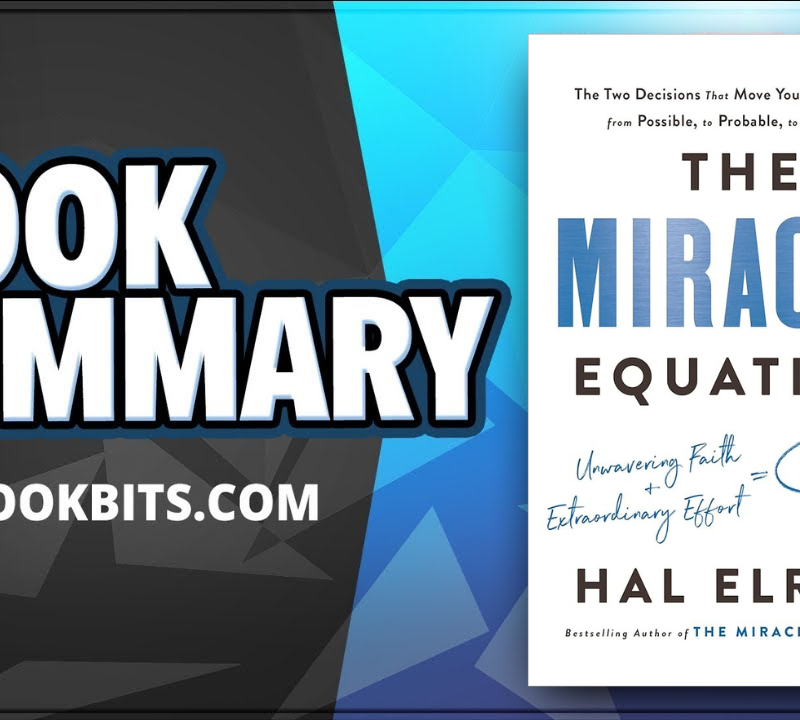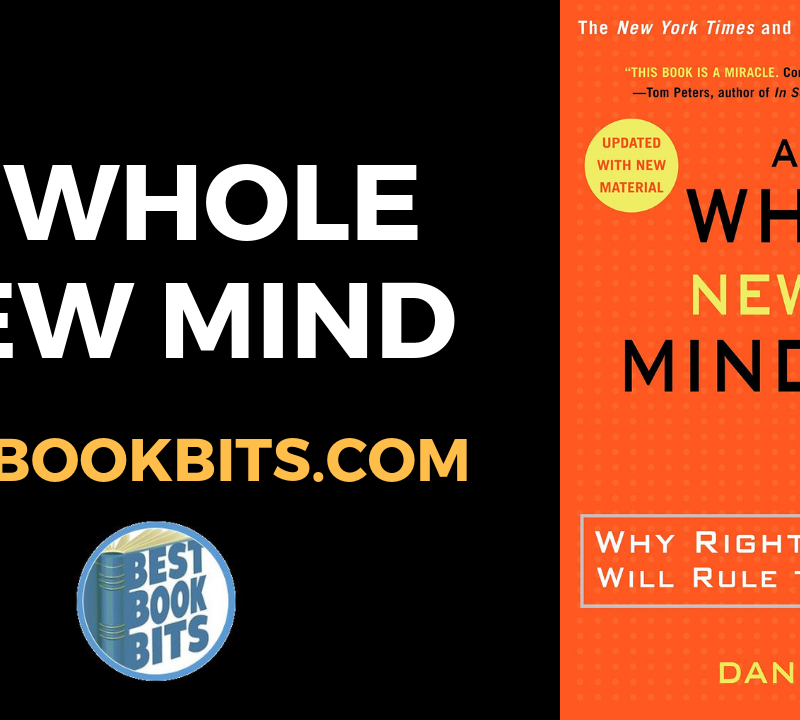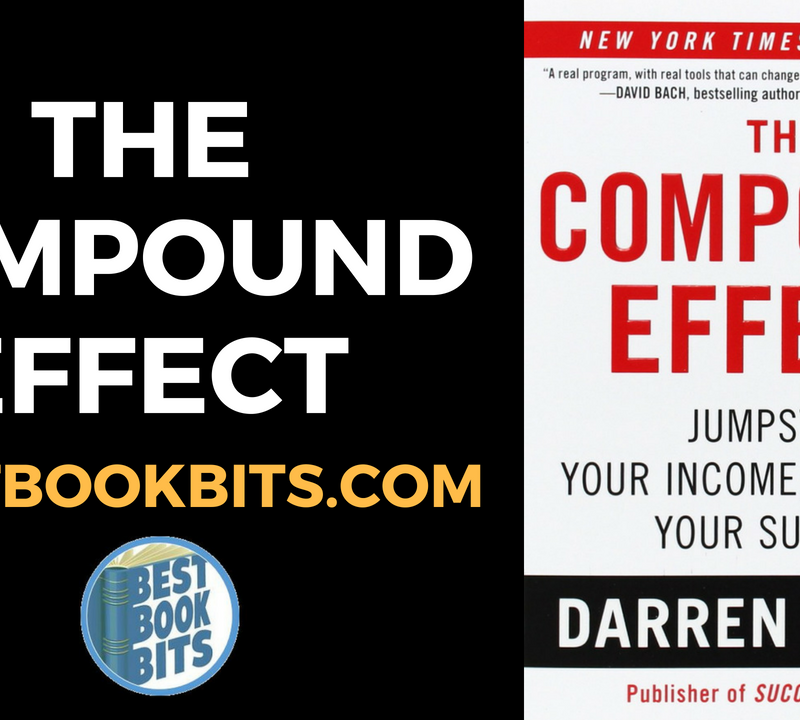★DOWNLOAD THIS FREE PDF SUMMARY HERE https://go.bestbookbits.com/freepdf
? MY FREE BOOK TO LIVING YOUR DREAM LIFE” https://go.bestbookbits.com/first-seven-steps
? SPONSOR BESTBOOKBITS BY USING PATREON https://www.patreon.com/bestbookbits
? SUPPORT BESTBOOKBITS BY CLICKING THE LINKS BELOW
150 PDF Summaries: https://go.bestbookbits.com/150
Coaching Program: https://go.bestbookbits.com/coaching
Subscribe to My Channel: https://www.youtube.com/bestbookbits?sub_confirmation=1
Website: https://bestbookbits.com
Instagram: https://www.instagram.com/bestbookbits
Spotify: https://open.spotify.com/show/0q8OW3dNrLISzyRSEovTBy
Facebook: https://www.facebook.com/michaelbestbookbits
Book Club: https://bestbookbits.com/bookclub/
Mailing List: https://mailchi.mp/d1dfc1907cdb/bestbookbits
“If the map doesn’t agree with the ground, the map is wrong.”
“It is when these feelings surface that we need to think about our mental instrument of navigation and how to correct it, so that we do not fall into the repetitive patterns of those who waste the learning that is the only consolation for our painful experience.”
“Here is what I tell them: The good news is that we have effective treatments for the symptoms of depression; the bad news is that medication will not make you happy. Happiness is not simply the absence of despair. It is an affirmative state in which our lives have both meaning and pleasure.”
“We are always talking about what we want, what we intend. These are dreams and wishes and are of little value in changing our mood. We are not what we think, or what we say, or how we feel. We are what we do. Conversely, in judging other people we need to pay attention not to what they promise but to how they behave.”
“Most of the heartbreak that life contains is a result of ignoring the reality that past behavior is the most reliable predictor of future behavior.”
“The frantic attempts to overcome this ennui take the form of a thirst for entertainment and stimulation that is, in the end, devoid of meaning.”
“The three components of happiness are something to do, someone to love, and something to look forward to.”
“We love someone when the importance of his or her needs and desires rises to the level of our own.”
“This question, “What do I owe my parents?” frequently distorts people’s lives well into, and sometimes throughout, adulthood. In fact, our children owe us nothing. It was our decision to bring them into the world. If we loved them and provided for their needs it was our task as parents, not some selfless act.”
“Well-functioning families are good at letting their children go. Poorly functioning families tend to hold on to them.”
“Any relationship is under the control of the person who cares the least.”
“If this formulation appears to be overly analytical and to ignore the mysterious process of “falling in love,” that is because in my experience the “chemistry” that causes us to choose one person over all other possibilities can be seen in retrospect as a combination of readiness, lust, and hope rather than an indefinable but powerful union of two souls.”
“There is a kind of track that we are put on early in life with the implicit suggestion that, if we “succeed,” we will be happy and secure.”
“The best one can hope for is to introduce them to the paradox of perfection: in some settings, notably in our intimate relationships, we gain control only by relinquishing it.”
“Life’s two most important questions are “Why?” and “Why not?” The trick is knowing which one to ask.”
“When presented with new things, the operative question may be “Why not?” but people frequently defend themselves from disappointment by asking “Why?””
“I frequently ask people who are risk-averse, “What is the biggest chance you have ever taken?” People begin to realize what “safe” lives they have chosen to lead.”
“Life is a gamble in which we don’t get to deal the cards, but are nevertheless obligated to play them to the best of our ability.”
“No one would expect to become good at skiing without falling down. And yet many people are surprised at the hurt that routinely accompanies our efforts to find someone worthy of our love. To take the risks necessary to achieve this goal is an act of courage. To refuse to take them, to protect our hearts against all loss, is an act of despair.”
“There are certain personality characteristics that are highly correlated with academic and professional success: dedication to work, attention to detail, ability to manage time, conscientiousness. People who have this constellation of traits are generally excellent students and productive workers. They can also be difficult to live with.”
“If we try to impose a businesslike, vertically integrated decision-making structure on our families, we are likely to encounter resentment and resistance. Conversely, if our style tends to be impulsive, superficial, and pleasure-seeking, we may find it difficult to succeed at work.”
“The things we are sure will make us happy seldom do. Fate, it seems, has a sense of humor.”
“This is the final and controlling paradox: Only by embracing our mortality can we be happy in the time we have. The intensity of our connections to those we love is a function of our knowledge that everything and everyone is evanescent. Our ability to experience any pleasure requires either a healthy denial or courageous acceptance of the weight of time and the prospect of ultimate defeat.”
“The most secure prisons are those we construct for ourselves.”
“Everything we are afraid to try, all our unfulfilled dreams, constitute a limitation on what we are and could become.”
“Also, the fear that we might try and not succeed can produce a crippling inertia. Keeping our expectations low protects us from disappointment.”
“Before we can do anything, we must be able to imagine it. This sounds easy, but I find that many people do not make the link between behavior and feelings. I blame modern medicine and the advertising industry for much of this problem. We have become used to the idea that much of what we don’t like about ourselves and our lives can be quickly overcome with little effort on our part.”
“It is hard to let go of a comforting illusion, but harder still to construct a happy life out of perceptions and beliefs that do not correspond to the world around us.”
“Most families I talk to see their aging relatives as a burden. The idea that the elderly have anything to give the young in the way of wisdom and life experience is seldom considered. The reason: most old people are preoccupied with self-centered complaints.”
“I believe that parenthood, a voluntary commitment, does not incur a reciprocal obligation in the young— either to conform their lives to our parental preferences, or to listen endlessly to our protests about the ravages of time. In fact, I am of the opinion that the old have a duty to suffer the losses of age with as much grace and determination as they can muster and to avoid inflicting their discomforts on those who love them.”
“It is not so much what occurs, but how we define events and respond that determines how we feel.”
“When I listen to comments from elderly people who have been married fifty, sixty, or more years answering the inevitable question about “the secret to a successful marriage,” it seems to me that a high tolerance for boredom often heads the list.”
“In fact, apart from a last-second touchdown, unexpected inheritance, winning the lottery, or a visitation from God, it is hard to imagine sudden good news. Virtually all the happiness-producing processes in our lives take time, usually a long time: learning new things, changing old behaviors, building satisfying relationships, raising children.”
“The process of building has always been slower and more complicated than that of destruction.”
“Of all the things that define us, education appears to be the most highly correlated with success. It is little wonder, then, that we are urged throughout childhood to do well in school and take our successive graduations as necessary steps toward a comfortable life. There is a promise implicit in this process: follow instructions, please others, obey the rules, and happiness will be yours.”
“Often it is the dalliances and the detours that define us. There are no maps to guide our most important searches; we must rely on hope, chance, intuition, and a willingness to be surprised.”
“So it is with our choice of people to be with. Nearly every human action is in some way an expression of how we think about ourselves. There are few behaviors that are “self-esteem neutral.””
““I don’t have answers applicable to every relationship; I believe in what works. What you are doing now isn’t working. Why not try something else?””
“The truth may not make us free, but to lie to ourselves in the name of temporary comfort is the ultimate folly.”
“We do those things repetitively that produce some reward. It is just hard sometimes to discern what that reinforcement might be.”
“The rise of effective somatic treatments— antibiotics, surgery, drugs to control conditions like diabetes, hypertension, all manner of hormone deficiencies— has contributed to the sense that healing is something that happens to us rather than something in which we are active participants.”
“One of the things that define us is what we worry about. Life is full of uncertainty and random catastrophe. It is easy, therefore, to justify almost any anxiety. The list of fears that people carry with them is long and varied, and a function of the information with which we are bombarded.”
“Even in good times the public perception of the risk of becoming a crime victim is exaggerated. We arm ourselves against mythical intruders and ignore the reality that family members are the most likely victims of the guns we buy. Meanwhile, the real risks to our welfare— smoking, overeating, not fastening seat belts, social injustice, and the people we elect to office— provoke little anxiety.”
“How can anyone be happy in such a world? A good case of healthy denial helps, but the real secret is selective attention. If we choose to focus our awareness and energy on those things and people that bring us pleasure and satisfaction, we have a very good chance of being happy in a world full of unhappiness.”
“Our yearning for the past is fueled by a selective memory of our younger selves.”
“To know someone fully and love them in spite of, even because of, their imperfections is an act that requires us to recognize and forgive, two very important indicators of emotional maturity. More important is the fact that, if we can do this for other people, we may be able do it for ourselves.”
“Our constant challenge is not to seek perfection in ourselves and others, but to find ways to be happy in an imperfect world.”
“The young frequently look at the old with a combination of obligation, disdain, and fear. They ask themselves, is this what I have to look forward to? Will I become a collection of physical complaints and recurrent reminiscences of an earlier, better time?”
“Or, we can concede a poor agnosticism and surrender ourselves to the unknown as we try to imagine some meaning in the ceaseless rhythms of existence: life and death, dream and despair, and the heartbreaking mystery of unanswered prayers.”
“All humor is in some way directed at the human condition. To laugh at ourselves is to acknowledge the ultimate futility of our efforts to stave off the depredations of time.”
“Things may be grave but they need not be serious.”
“This approach manifests the cardinal rule of anxiety: Avoidance makes it worse; confrontation gradually improves it. In the case of depression, the behavior that needs changing generally involves overcoming inertia and fatigue enough to do things that predictably make us feel better.”
“Mental health is a function of choice. The more choices we are able to exercise, the happier we are likely to be.”
“The primary variable in this regard is tolerance of risk. If we take counsel of our fears, particularly our fear of change, it is hard to choose a life that makes us happy. Is it anxiety or lack of imagination that restricts us?”
“Most of all, by placing responsibility outside ourselves we miss out on the healing knowledge that what happens to us is not nearly as important as the attitude we adopt in response.”
“As a way of inducing reflection I frequently ask people to write their own epitaphs… I would choose for my own. I tell them I like the words of Raymond Carver: And did you get what you wanted from this life, even so? I did. And what did you want? To call myself beloved, to feel myself beloved on the earth.”
★DOWNLOAD THIS FREE PDF SUMMARY HERE https://go.bestbookbits.com/freepdf
? MY FREE BOOK TO LIVING YOUR DREAM LIFE” https://go.bestbookbits.com/first-seven-steps
? SPONSOR BESTBOOKBITS BY USING PATREON https://www.patreon.com/bestbookbits
? SUPPORT BESTBOOKBITS BY CLICKING THE LINKS BELOW
150 PDF Summaries: https://go.bestbookbits.com/150
Coaching Program: https://go.bestbookbits.com/coaching
Subscribe to My Channel: https://www.youtube.com/bestbookbits?sub_confirmation=1
Website: https://bestbookbits.com
Instagram: https://www.instagram.com/bestbookbits
Spotify: https://open.spotify.com/show/0q8OW3dNrLISzyRSEovTBy
Facebook: https://www.facebook.com/michaelbestbookbits
Book Club: https://bestbookbits.com/bookclub/
Mailing List: https://mailchi.mp/d1dfc1907cdb/bestbookbits













